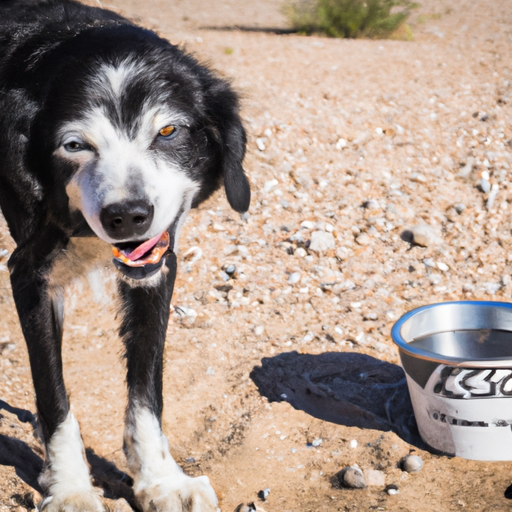As a diligent and caring dog owner, it’s important to stay informed about your pet’s health. One condition to be particularly aware of is dehydration. This can occur when a dog loses more fluids than it takes in, resulting in an imbalance that affects normal bodily functions. In this guide, we will explore the signs of dehydration in dogs, its potential causes, and how to prevent it.
Table of Contents
- Understanding Dehydration in Dogs
- Signs of Dehydration in Dogs
- Causes of Dehydration in Dogs
- How to Prevent Dehydration in Dogs
- Frequently Asked Questions
Key Takeaways
- Dehydration in dogs can lead to serious health issues if not addressed promptly.
- Signs of dehydration include lethargy, dry gums, and loss of appetite.
- Dehydration can be caused by a lack of water intake, excessive heat, vomiting, or diarrhea.
- Prevention strategies include ensuring adequate water supply, avoiding excessive heat, and seeking veterinary care when needed.
Understanding Dehydration in Dogs
Dehydration in dogs is a serious condition that can lead to severe health problems if not addressed promptly. It occurs when a dog loses more fluids than it takes in, leading to an imbalance that can affect normal bodily functions. This comprehensive guide on canine health further explains the importance of proper hydration for our canine friends.
Signs of Dehydration in Dogs
As an owner, it’s critical to recognize the signs of dehydration in your dog.
-
Lethargy or Depression: Dogs experiencing dehydration may appear lethargic or depressed. They may be less active than usual and show little interest in play or exercise.
-
Loss of Appetite: Dehydrated dogs may lose their appetite, leading to weight loss over time.
-
Dry Gums and Nose: A dog’s gums and nose are naturally moist. If they are dry or sticky, this could indicate dehydration.
-
Increased Heart Rate: Dehydration can cause a dog’s heart rate to increase as the body struggles to maintain normal function.
-
Panting or Rapid Breathing: Dogs may pant or breathe rapidly when they are dehydrated, as their bodies attempt to cool down.
For more detailed information on how to spot these signs, check out this article.
Causes of Dehydration in Dogs
Dehydration in dogs can occur for several reasons. These include:
- Insufficient Water Intake: Dogs need a constant supply of fresh, clean water. If they don’t drink enough, they can become dehydrated.
- Excessive Heat or Activity: Dogs can lose a lot of fluids through panting, especially in hot weather or after strenuous activity.
- Vomiting or Diarrhea: These conditions can cause a dog to lose more fluids than it takes in, leading to dehydration.
- Illness or Disease: Certain diseases or conditions, such as kidney disease or diabetes, can increase a dog’s risk of dehydration.
How to Prevent Dehydration in Dogs
Preventing dehydration in dogs is key to maintaining their overall health. Here are a few strategies:
-
Ensure Adequate Water Supply: Always provide your dog with fresh, clean water. Consider adding more water bowls around your house or investing in a dog water fountain to encourage drinking.
-
Avoid Excessive Heat: Try to keep your dog cool on hot days. Limit their time outside and avoid strenuous exercise during the heat of the day.
-
Monitor Your Dog’s Health: Regular check-ups with your vet can help detect any underlying health issues that could lead to dehydration.
For more information on how to prevent dehydration in dogs, you can refer to this useful guide on One Top Dog.
Frequently Asked Questions
Q: How can I tell if my dog is dehydrated?
A: Signs of dehydration in dogs include lethargy, loss of appetite, dry or sticky gums and nose, increased heart rate, and panting or rapid breathing. If you notice any of these signs, seek veterinary care immediately.
Q: What causes dehydration in dogs?
A: Dehydration in dogs can be caused by insufficient water intake, excessive heat or activity, vomiting or diarrhea, or certain illnesses or diseases.
Q: How can I prevent my dog from becoming dehydrated?
A: To prevent dehydration, make sure your dog always has access to fresh, clean water. Avoid excessive heat and monitor your dog’s health regularly.
In conclusion, keeping your dog hydrated is essential for their overall health and well-being. By understanding the signs, causes, and prevention strategies for dehydration, you can ensure your furry friend stays happy and healthy. For more pet care tips and advice, be sure to explore other articles on One Top Dog.



